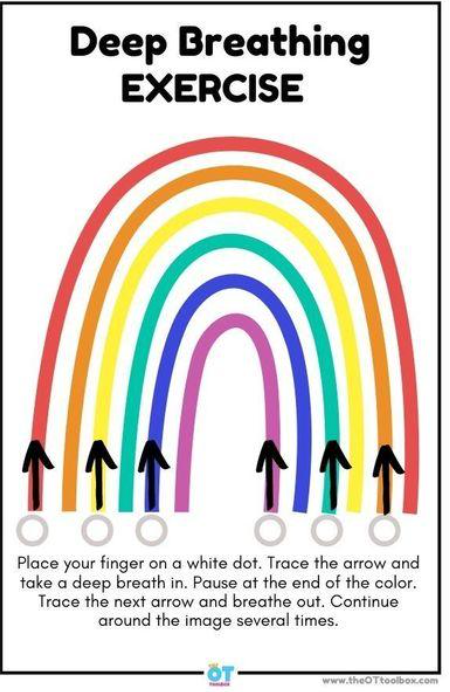
Have you ever felt that unsettling feeling in your stomach before a big performance or an important test? That’s anxiety, and it’s perfectly normal. In fact, anxiety is a natural human response to perceived threats or danger. It's our brain’s way of alerting us to potential dangers and can be focused around real or imagined threats to our physical or emotional well-being.
Deep Breathing

Anxiety is a warning system that is built into our being, and it is not always harmful. In many cases, anxiety can be a protective factor. For instance, it can be the alarm bell that goes off in our heads, spurring our bodies to move quickly to get out of a burning building or to seek shelter in a storm. However, anxiety can become problematic when anxious thoughts stop us from doing everyday tasks.
When we get nervous or anxious, our brain can “flip its lid,” meaning that the prefrontal cortex, or our thinking and rational brain, can go offline. This leaves only the amygdala, which is the part of our brain responsible for the fight, flight, or freeze response, online. This part of the brain functions based more on instinct and quick response, but it is not rational.

The hand model of the brain is an excellent tool to help understand how the brain responds to anxiety. When we get nervous or anxious, our hand clenches into a fist, representing the amygdala taking over. The fingers represent the prefrontal cortex, which is offline. However, by using techniques such as breathing and mindfulness, we can disrupt these signals and calm ourselves down. For example, using the Five Finger Breathing method, Box Breathing, and other breathing methods (check them all out throughout this blog!) are great ways to calm our anxiety when we're feeling overwhelmed.
Box Breathing

It's important to note that anxiety is not something that can be completely eliminated. We need anxiety to survive, after all! However, when anxiety starts to interfere with our daily lives, seeking help is a form of self-care and is nothing to be ashamed of. Treatment options such as cognitive-behavioral therapy, medication, and mindfulness practices can all be effective in managing anxiety.

Anxiety is not always a bad thing. It’s a natural human response to perceived threats or danger, and it can be a protective factor in many cases. However, when anxiety starts to interfere with our daily lives, it's important to seek help. By understanding anxiety and using techniques to manage it, we can live happier, healthier lives.
Five Finger Breathing


Comments